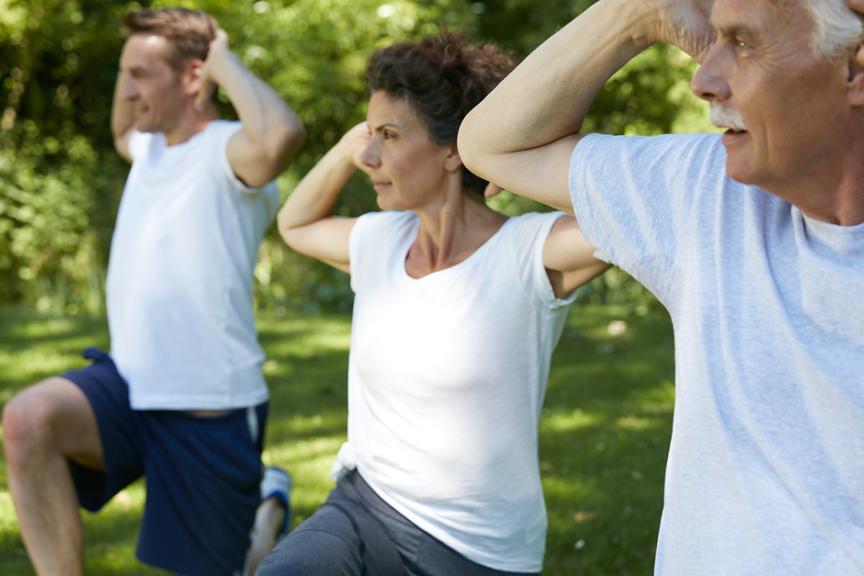How Much Exercise Is Enough for a Healthy Heart?
Recent Studies Reveal Optimal Levels of Physical Activity for Cardiovascular Health
With a new season upon us, spring is a great time to recommit to regular exercise and take advantage of the many benefits it offers. As more studies continue to show, exercise is one of the best things you can do for your health, and even a small amount can make a big difference.
The right amount of exercise? Depends!
We’ve seen that almost any level of exercise can yield benefits. A simple walk on your lunch hour, at an average pace of three kilometres per hour—or eight kilometres over the course of a week—can cut the risk of cardiovascular events like heart attacks and strokes by almost a third.
For cardiac implant patients, experts recommend to “start low and go slow” when resuming exercise. Many people may well have at least one friend who regularly talks about getting their “10,000 steps a day” in. And while that’s a nice number to aim for and easy to remember, researchers say 7,000 steps is already plenty. Experts with the University of Massachusetts in Amherst published the findings after following the exercise habits of over 2,000 people between age 38 and 50 for more than 11 years. They found that 7,000 steps a day was already enough to cut the risk of death—from any cause—by between 50 and 70 percent.
But for people ready to go beyond the minimum—how much is optimal?
The benefits of getting incrementally more exercise continue to trend upward before levelling off at a certain threshold of activity. Each additional thousand steps per day brings more benefits—with the greatest risk reduction happening when someone gets somewhere between 7,000 and 10,000 steps. Going beyond 10,000 steps a day—researchers say—brings only very small additional benefits.
Getting higher intensity exercise—how much is enough?
And what about more vigorous exercise? The British National Health Service says people should get a minimum of 75 minutes of higher intensity physical exercise or 150 minutes of moderate exercise per week . While getting more than this guideline certainly helps, a study published in Circulation finds that following this base recommendation is already enough to get a fair share of the health benefits. Following 115,000 American adults over a period of 30 years, study authors found that people who achieved the minimum recommended exercise time of 75-150 minutes weekly had a 19 percent lower risk of death from any cause during 30 years of follow-up. People who got double that, or 150-300 minutes of physical activity a week, saw a 21-23 percent risk reduction. Those getting four times the recommended level of exercise, between 300-600 minutes of higher intensity physical exercise a week, saw a 26-31 percent risk reduction. Those who exercised for 600 minutes (10 hours) a week or more, did not see additional benefit for reducing the risk of all-cause death.
Don't neglect the fun: enjoyment is key to successful exercise habits
What these recent study results ultimately reveal is that while more exercise is often still better—it’s not always significant. Getting a lower level of exercise that still meets current health guidelines is already enough to get most of the benefits of exercise, including living longer, improving memory and mental health.
But while exercise is crucial for good health, it's also important to enjoy it. As legendary basketball player Julius Erving once said, "Always remember, the fun in the sport is the most important thing." This applies to any form of physical activity. Whether it's playing a pickup game of basketball or practicing yoga, finding an activity that you enjoy can make it easier to stick with and reap the rewards.
Today, on the International Day of Sport, it's worth remembering the many benefits of exercise, not just for physical health, but also for mental well-being and social connection. So whether you're a seasoned athlete or just starting out, take some time to get active, have fun, and enjoy the many benefits of moving your body.










